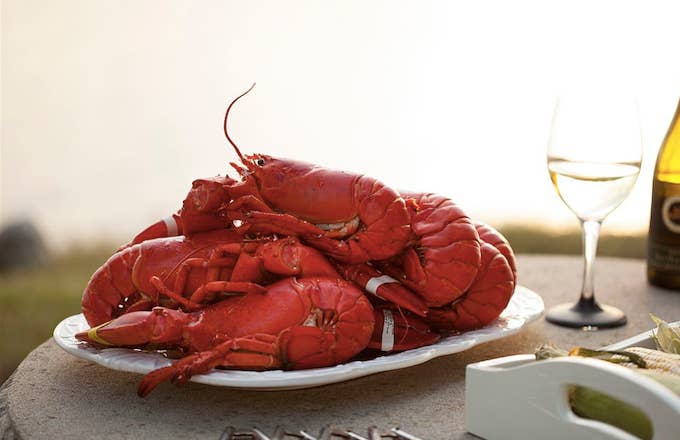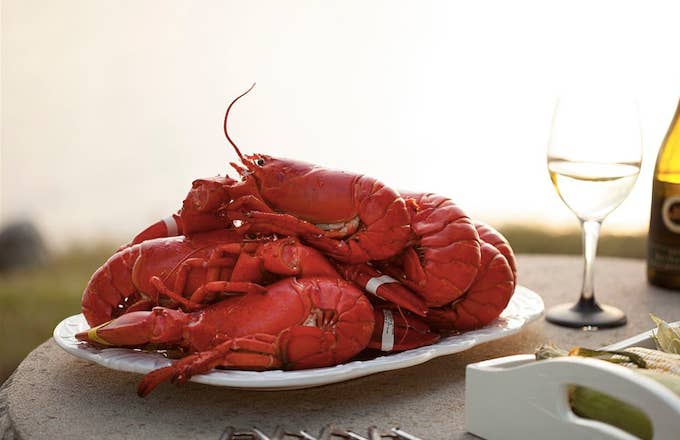
A Maine restaurateur is giving “lobster bake” a new meaning.
Charlotte Gill, owner of Charlotte’s Legendary Lobster Pound, has implemented an unconventional step to her food-cooking process: She gets the crustaceans high before they’re boiled to death.
Gill speculates that this so-called “humane” method sedates the animals and, therefore, results in a “less traumatic” death.
“I feel bad that when lobsters come here there is no exit strategy,” Gil told the Mount Desert Islander. “It’s a unique place and you get to do such unique things but at the expense of this little creature. I’ve really been trying to figure out how to make it better.”
Here’s a brief explanation of this practice as described the by the publication:
In an experiment to test the affect of cannabis on lobsters, Roscoe the lobster was placed for a few minutes in a covered box with about two inches of water at the bottom. Marijuana smoke was then blown into the water at the bottom of the box.
Gill claim Roscoe was noticeably calmer after the hot-boxing and was never aggressive with the other lobsters despite the fact that his claw bands were removed. Roscoe was observed in a tank for several weeks, as Gill wanted to rule out any adverse effects. Once she was convinced the lobster was healthy, she released it back into the ocean as a gesture of gratitude.
“If we’re going to take a life we have a responsibility to do it as humanely as possible,” Gill said.
Gill, a licensed medical marijuana caregiver, has since created an outdoor station where lobsters can be sedated with marijuana smoke at the customer’s request. The restaurant’s staff will also cook the lobsters in the traditional way if patrons are uncomfortable consuming the hot-boxed lobsters; however, Gill insists this practice will not get diners high.
“For this new process though, in order to alleviate any and all concern about residual effect, as we will be dealing with the chemical compound THC, we will use a different method,” she explained in an email. “THC breaks down completely by 392 degrees, therefore we will use both steam as well as a heat process that will expose the meat to 420 degree extended temperature, in order to ensure there is no possibility of carryover effect (even though the likelihood of such would be literally impossible).”
420 degrees? OK, it’s not surprising that many people are calling BS on Gill’s purported “humane” tactics. Other than that suspiciously fitting temperature setting, there are a slew of many questions that have been left unanswered: Do invertebrates such as lobsters even have cannabinoid receptors to get high? THC and CBD are not water soluble, so how does a lobster—which breathes through its gills—consume the activated chemicals? And, most importantly, is this legal?
After reading Gill’s explanation, it seems this was an April Fool’s joke that failed to get coverage until five months later.

